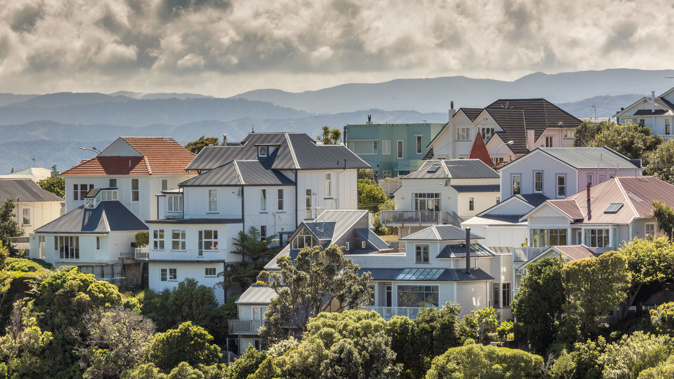
More than a third of property in New Zealand is owned by mum and dad landlords, new analysis of housing records shows.
Another sixth is owned by professional investors - those that have more than 20 properties to their name.
The data, a combination of property titles and companies office records, has revealed what ownership patterns in New Zealand look like at a large scale for the first time.
It shows 30 per cent of homes are owned by people who only own one home.
Another 13 per cent is owned by people who have two homes. Six per cent is owned by people who have three homes. Ten per cent is owned by people who have between four and six homes.
And another 10 per cent is owned by those who have between seven and 20 homes.
For its purposes, the Herald has assumed the bulk of those people are part-time residential property investors - acknowledging some of the homes will be baches, and some of the landlords might be professional investors.
It has assumed people who own more than 20 properties are investing full-time, whether they own them in their own names or through companies.
Ten per cent of such "professionals" owned the properties in their names, and another 7 per cent through companies.
The data was analysed for the Herald by Ramifier, an Auckland-based software startup that does highly accurate entity resolution – another way of saying data matching or record linkage.
It took Land Information New Zealand (LINZ) data, which documents property title ownership, and matched it with Companies Office records. It used the companies data to "get behind" the companies who own property and figure out the ultimate owners.
"But before we used the data we needed to figure out who was who," said Ramifier's John Holt.
This means Ramifer had to figure out when, for example, "Joe Bloggs in Timaru" was the same as "Joe Bloggs in Alexandra", so it can count their properties against the same owner; similarly if there are multiple "Joe Bloggs" who are shareholders of companies it needed to distinguish between them so we know who has shares in multiple companies.
"There is a fair bit of data here, by New Zealand standards – not something you would tackle by hand," Hoit said. "For example, the second step of the process concerns 11.5 million people, organisations and addresses, with 32 million connections between them."
The most interesting aspect was the amount of property owned by small-time investors.
This group - mum and dad landlords - are frequently at the centre of political bartering, such as the recent arguments over capital gains tax, and the current proposed changes to rental laws.
However, previous estimates to work out how much property they own have been done by surveys or using bond lodgement data, which is inaccurate.
"Mum and dad" investors buy and hold a small-to-medium number of houses as a form of retirement savings.
For a bit, this group looked to be waning - property associations had threatened that with cooling prices and possible tax changes, investors would be getting out.
But CoreLogic data from last year showed mum and dad investors accounted for 26 per cent of property purchases by August - levels not seen since the investor zenith just before the Reserve Bank changed rules about deposits in 2016.
CoreLogic said the greatest increase in purchases was by those with only one other property - new investors. The second biggest group was those with three or four houses, looking to expand their portfolio.
"Any investors that are getting out have just been replaced by more investors," says Nick Goodall, from CoreLogic.
"There's still easy credit, and low interest rates. And once capital gains tax was ruled out, the confidence came back. Investors are saying, 'we can continue to buy in this market'."
While the new data gives a better indication of what the ownership space looks like, there were some gaps, Ramifier said.
One gap was when properties were owned by trusts, as there was no public register of trusts and their beneficiaries and trustees.
Another "gap" is for larger companies with many shareholders, who don't list their shareholders in the Companies Office data. However, the largest holding by far in that category was by Housing New Zealand, which owns around 60,000 properties.
Take your Radio, Podcasts and Music with you









